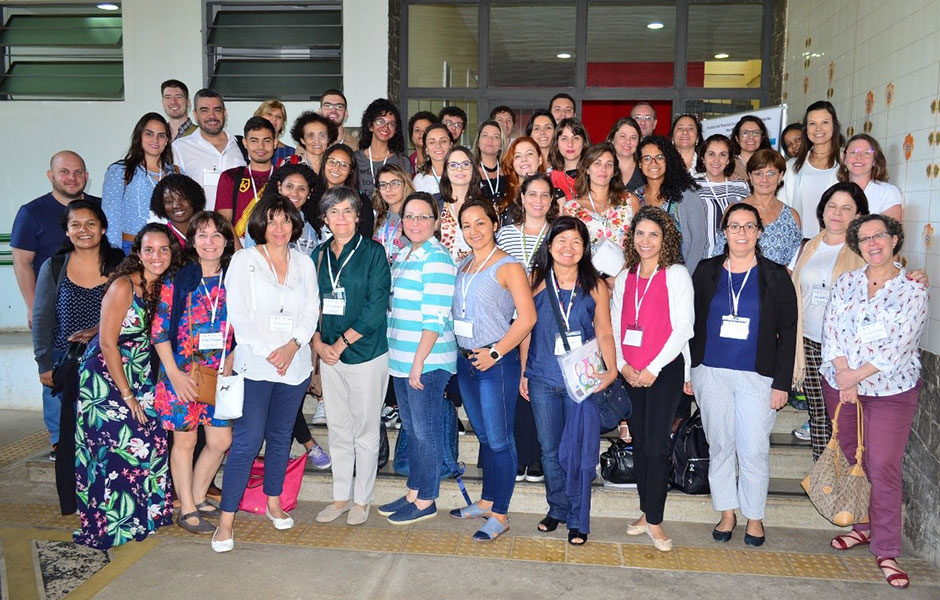March 27, 2019
Scientists and technicians working on arbovirus projects in Brazil and across Latin America are meeting for a five-day training workshop organized by the Mérieux Foundation (ZikaPLAN) and Fundacao Faculdade de Medicina (ZIKAlliance) on March 25-29, 2019.

This workshop, organized thanks to the collaboration between two Zika consortia, is taking place at the University of Sao Paulo in Brazil and led by researchers, Dr. Ester Sabino, Director of the Institute of Tropical Medicine, and Dr. Cassia Mendes-Correa, Head of the Virology Laboratory, both at the University of Sao Paulo, and Dr. Florence Komurian-Pradel, GABRIEL network manager at the Mérieux Foundation. The workshop aims to strengthen laboratory capacity in Zika virus (ZIKV) and dengue virus (DENV) diagnosis.
40 participants are benefiting from the theoretical course and 10 participants are receiving practical training during the workshop. The course sessions span clinical epidemiology, molecular biology and serology.
Dr. Florence Komurian-Pradel, representing ZikaPLAN’s Platform for Diagnostics Innovation and Evaluation is presenting the rapid diagnostic tests for the detection of ZIKV, developed by the Mérieux Foundation and evaluated in partnership with the Institut Pasteur of Dakar.
Clinical Epidemiology program learning objectives
- be aware of the impact of arboviruses in terms of global public health
- understand the role of mosquitoes and non-primates in the spread of arboviruses worldwide
- understand the origin and spread of Zika virus
- discuss the Zika neurologic syndrome and the importance of diagnostic for pregnant woman
- learn the spectrum of clinical manifestations associated with the different arboviruses
Molecular Biology program objectives
- understand the complexity of the arboviruses’ genetic diversity (Flaviruses and Alphaviruses)
- be aware of the adequate sampling and the optimal samples required for molecular test at different phases of disease
- be aware of molecular techniques available for diagnostic of the main arboviral infections
- get insights on molecular based experimental design (primer design; conventional and real-time PCR)
- review sequencing and phylogenetic methods used in epidemiological studies
- provide a basic introduction to the field of phylogenetics, with an emphasis on flavivirus phylogeny
- review the best genes to answer the key questions on phylogenetics: What genes/regions should I use to build a phylogeny?
- learn how to read and interpret a flavivirus simple tree
- describe the applications of phylogenetics
Serology program objectives
- understand the principles and limitations of the different serological assays available for arboviral diagnosis
- learn about cross-reactivity in serology testing
- learn about the performance observed on the different assays